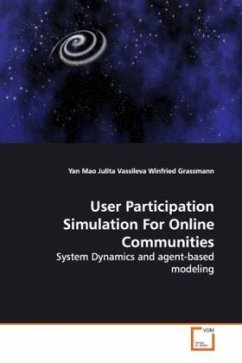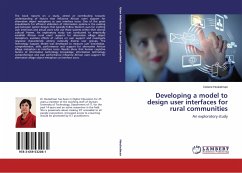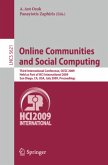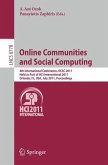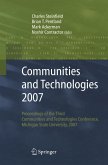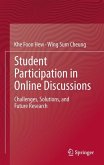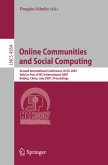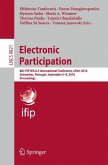In recent years, extensive studies of many
interesting aspects of online community dynamics
promoted a better understanding of this area. One of
the most challenging problems facing builders of
online communities is the design of incentive
mechanisms that can ensure user participation.
However, running online community experiments in the
real world is expensive, and requires a great deal of
motivation from users.
In this thesis two major approaches are explored:
system dynamics modeling and agent-based modeling, to
simulate the overall behaviours of participants in
online communities. Although these models are
developed by using two different methodologies, both
of them can provide insights into the user motivation
process, incentive mechanism evaluation and community
development. The target online community for my study
is called Comtella, which is used in several senior
Computer Science classes in the Department of
Computer Science, University of Saskatchewan.
Simulation models for the Comtella online community
have been developed and the simulation results are
useful to provide future directions for incentive
mechanism improvement.
interesting aspects of online community dynamics
promoted a better understanding of this area. One of
the most challenging problems facing builders of
online communities is the design of incentive
mechanisms that can ensure user participation.
However, running online community experiments in the
real world is expensive, and requires a great deal of
motivation from users.
In this thesis two major approaches are explored:
system dynamics modeling and agent-based modeling, to
simulate the overall behaviours of participants in
online communities. Although these models are
developed by using two different methodologies, both
of them can provide insights into the user motivation
process, incentive mechanism evaluation and community
development. The target online community for my study
is called Comtella, which is used in several senior
Computer Science classes in the Department of
Computer Science, University of Saskatchewan.
Simulation models for the Comtella online community
have been developed and the simulation results are
useful to provide future directions for incentive
mechanism improvement.

